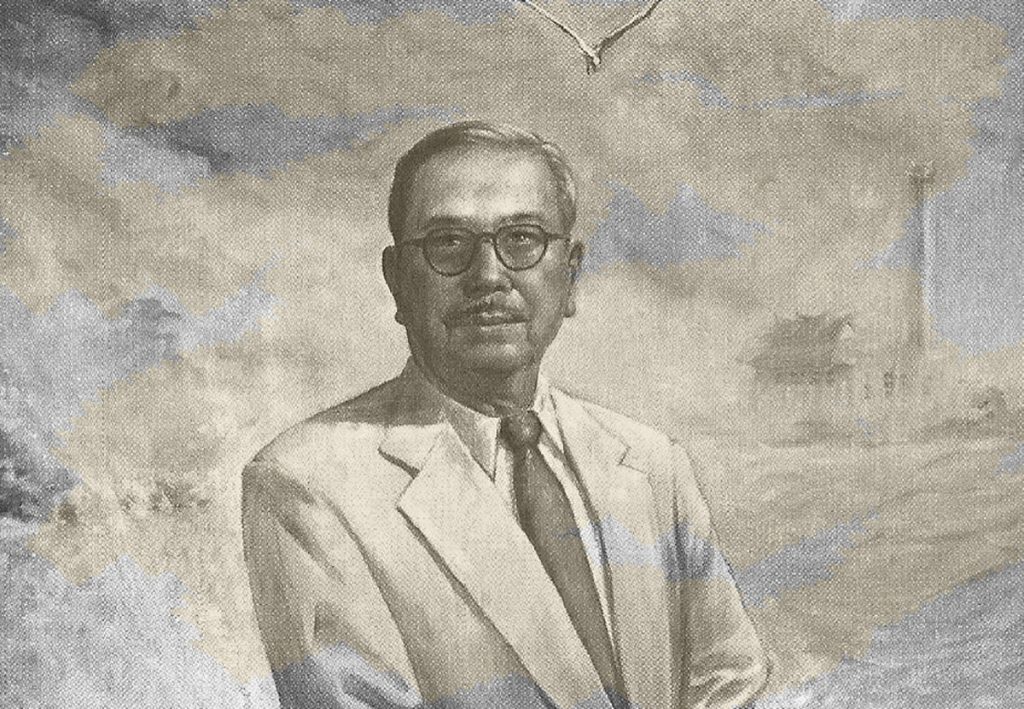
Tan Kah Kee’s Family Background
Tan Kah Kee was born on 21st October 1874 in Jimei Village, Tong’an District, Fujian Province, China. He lived in Malaya and Singapore from 1890 to 1950, which was more than 50 years. In the history of overseas Chinese in the 20th century, he had played significant roles in political, economic, cultural, educational, and social activities. He was also a renowned entrepreneur, an educationist, and a social activist in China and the world.
Tan Kah Kee experienced an era of upheavals in the history of China as well as a period of rapid socio-political changes in Southeast Asia. He witnessed the demise of the feudal Qing dynasty, the rise and fall of the Republic of China, and the birth of the People’s Republic of China. During that period, the national independence movements swept through various parts of Southeast Asia, and thus the colonial power in Singapore and Malaysia was under immense pressure. (Huang Jinying: Tan Kah Kee, published by Ee Hoe Hean Club, 2002)
Tan Kah Kee’s grandfather Tan Chien Chi was the 17th generation member of the Tan clan. He was a strict and hardworking leader of the clan. For generations, many members of the Tan clan worked as fishermen and farmers. Although Tan Chien Chi was not particularly interested in doing business, his three children, Eng Tiong, Eng Kan and Kee Peck, had their own plans.
Tan Kah Kee’s father, Tan Kee Peck, followed his two elder brothers to Singapore at a young age to help them in their rice trading business. By the time Tan Kah Kee was born, Tan Kee Peck had set up his own rice trading enterprise called “Soon Ann”. After making huge profits, he ventured into other business sectors, such as sago and pineapple productions. Tan Kee Peck was an upright and amiable man who lived a simple and frugal life. He married three times and had ten children. His wife, who came from the Sun family, bore him two sons, namely Tan Kah Kee and Tan Keng Hean. They came second and seventh respectively in terms of seniority in the extended Tan family.
Tan Kah Kee wrote in the preface to his book entitled “Memoirs of An Overseas Chinese in Nanyang”
I wasn’t a brilliant kid and only went to private school at the age of nine. When I was 17, my teacher at the private school passed away. I quit school and went overseas… Since I was 20, I have been keen on getting involved in the affairs of my hometown, clan, the ancestral shrine, private schools, and charities. I’m doing these due to passion, and no one has ever forced me to do so against my will.
This passage shows that when Tan Kah Kee was young, he received basic Confucian education at Nanxuan Private School in Jimei Village and subsequently went to Singapore as instructed by his father.
After arriving in Singapore, Tan Kah Kee, who was already 17 years old, helped his uncles to manage the accounts and clerical work in his father’s rice trading business. As he was hardworking, frugal, and competent in managing the business, he soon earned his father’s trust and recognition.
Following his mother’s wish, Tan Kah Kee returned to his hometown in 1893 to marry Teo Po Ke, the daughter of a scholar Teo Jian Ren. They had four sons and three daughters, namely Chay Bing, Khuat Siong, Pok Ai, Pok Chay, Ai Lay, Lai Ho, and Ai Eng. He married his second wife Goh Shiok Neo from Xiamen, who then gave birth to three sons and three daughters, namely Guan Khai, Guan Chay, Guan Aik, Ah Hui, Ah Moi, and Poh Tee. His third wife was Yap Kheok Neo from Xiamen, who gave birth to a son and three daughters, namely Kok Kheng, Lai On, Mary, and Lai Choo. His fourth wife Madam Chou, who was a local from Singapore, gave birth to a son, Kok Whye. All in all, Tan Kah Kee had 17 children.
